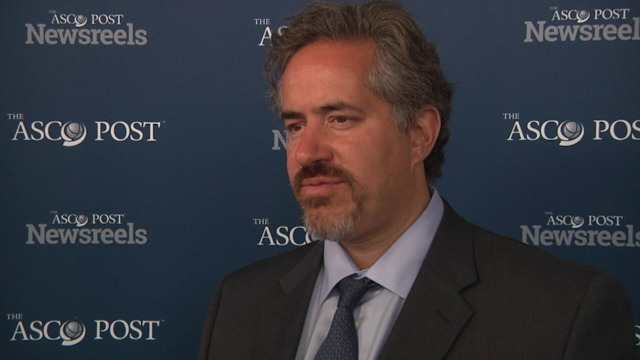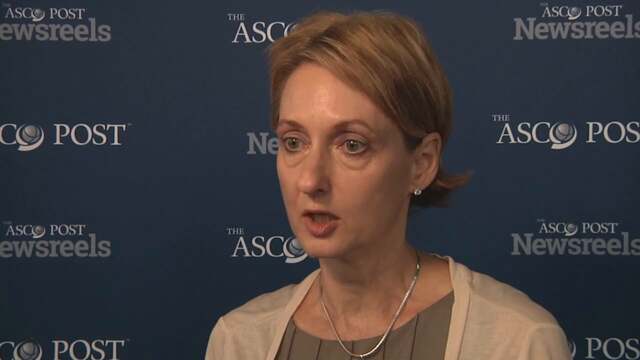Lawrence N. Shulman, MD, and Clifford A. Hudis, MD, on Cancer Care in Resource-Challenged Areas
2015 ASCO Annual Meeting
Lawrence N. Shulman, MD, of Dana-Farber Cancer Institute, and Clifford A. Hudis, MD, of Memorial Sloan Kettering Cancer Center, discuss the delivery of cancer care in resource-constrained settings such as Rwanda and Haiti, and plans to conduct research in basic tumor biology of patients in these areas.
Ruben A. Mesa, MD
Ruben A. Mesa, MD, of the Mayo Clinic, discusses pacritinib and its significant efficacy in myelofibrosis (Abstract LBA7006).
Eric Van Cutsem, MD, PhD, and Axel Grothey, MD
Eric Van Cutsem, MD, PhD, of University Hospitals Gasthuisberg/Leuven, and Axel Grothey, MD, of the Mayo Clinic, discuss the Italian-led study on trastuzumab and lapatinib in HER2-amplified metastatic colorectal as well as other colorectal cancer findings discussed at ASCO (Abstract 3508).
Laurie H. Sehn, MD, MPH
Laurie Helen Sehn, MD, MPH, of the British Columbia Cancer Agency, discusses a first-ever finding on obinutuzumab and bendamustine in the setting of rituximab-refractory indolent non-Hodgkin lymphoma (Abstract LBA8502).
Christopher Sweeney, MBBS
Christopher Sweeney, MBBS, of Dana-Farber Cancer Institute discusses the EnzaMet and EnzaRad study designs, eligibility requirements, and endpoints (Abstracts TPS5077 and TPS5078).
Tony Mok, MD, and James O. Armitage, MD
James O. Armitage, MD, of the University of Nebraska Medical Center, and Tony Mok, MD, of The Chinese University of Hong Kong, discuss oncology from an international point of view.





